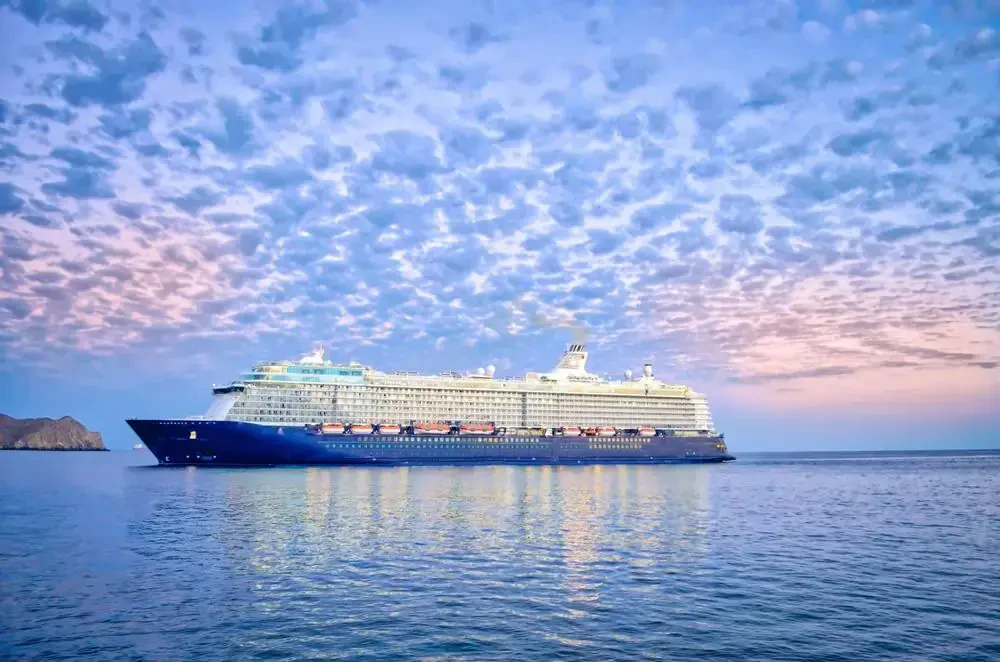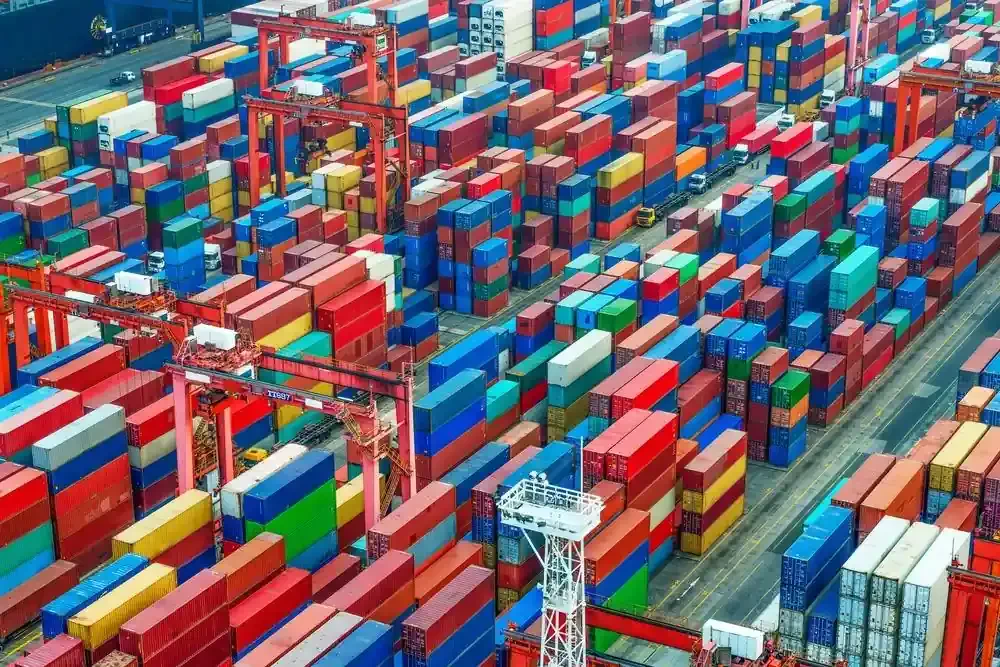Costa Rica (CR)
Published by Chris Townsend
Last updated Jan, 21 2026

International Movers Costa Rica
Are you trying to find the right Costa Rica international movers? We offer the most affordable options, along with choices to make your move super convenient. Whether you’re looking to move quickly or you have plenty of time to plan, we have the right options for your overseas move. Our team will make sure it happens on a schedule with the best help in the industry.
Cost of Costa Rica International Hauling Companies Near Me
Figuring out how much it will cost top hire Costa Rica international haulers is an important part of the process. Typically, an international move will range from about $3,000 to more than $20,000. It all depends on a few factors, which include:
Distance – When you shift a longer distance, you can expect to pay more for your move.
Volume/Weight – If you have lots of things to move, it will cost more compared to a smaller shift.
Services – You can add on certain services to make your shifting easier at a cost.
Time of Year – There are off-peak times of the year when relocating might not cost as much as other times of the year.
You want to consider the cost of Costa Rica international movers before you book your haulers. We provide the right options and give you the upfront and transparent moving quote you need.
How To Move Overseas To Or From Costa Rica?
When you’re ready to move overseas to or from Costa Rica, you need the right plan. There are plenty of options to help make planning and actually moving internationally easier. If you try to do this on your own, it can become rather overwhelming very fast.
We offer the right team to make it easier to move overseas. We can help you with the planning, give you the logistics support you need, and provide professional relocators to help with hauling tasks. Our team will make your move easier.
Hire the best international relocators today by calling us!

Container Shipping Rates

FCL shipping is best for transporting lots of boxes, pallets and anything which will require a full container shipping to Costa Rica of up to 45,000lbs.
| Full Container Load (FCL) Shipping Rates | |
| 20 ft Container | $795 |
| 40 ft Container | $855 |

LCL shipping is more affordable way to transport less than container load shipments to Costa Rica.
| Less Than Container (LCL) Shipping Rates | |
| LCL | $79/CBM |
| Personal Effects | $685 |
| Household Goods | $735 |

International house moving to Costa Rica services - quick, easy and cheap.
| International House Moving Costs | |
| Partial House (2000Lbs & Less) | $685 |
| 1 Bedroom (3850 Lbs) | $1075 |
| 2 Bedroom (4500 Lbs) | $1360 |
| 3+ Bedroom (8750 Lbs) | $2160 |

International auto transport services to Costa Rica via RoRo and container ships. Ship cars, trucks, suvs, atv's, boats, RV's, heavy equipment and more.
| Container Car Shipping | |
| Sedan (Container) | $855 |
| SUV (Container) | $895 |
| Sedan via RORO | $595 |
| SUV via RORO | $645 |
Services We offer:
Find the right services for your move including:
- Long-distance Hauling
- Local moving
- International Relocating
- Residential moves
- Commercial Hauls
- Moving and storage
- Haulers and packers
- Movers with a truck
- Furniture Shifting
- Military moving
If you’re ready to relocate across the world or down the road, we can help you. It’s time to get the right services and we have just what you need. Our team will take the stress out of your move.

Costa Rica International Shifting Companies Rates
| To / From Costa Rica | 2 BR | 3 BR | 4 BR |
| Leon, Costa Rica to Libya | $7,413 - $8,413 | $9,191 - $10,601 | $11,019 - $12,719 |
| Limon, Costa Rica to Argentina | $3,766 - $4,766 | $4,633 - $5,549 | $6,043 - $7,249 |
| San Jose, Costa Rica to Brazil | $2,781 - $3,401 | $3,781 - $4,811 | $5,071 - $5,771 |
| Uruguay to Escazu, Costa Rica | $3,632 - $4,465 | $4,632 - $5,875 | $6,347 - $7,047 |
| Jaco, Costa Rica to Nigeria | $7,038 - $8,038 | $8,723 - $10,133 | $10,458 - $12,158 |
| Libya to Puerto Limon, Costa Rica | $7,413 - $8,413 | $9,191 - $10,601 | $11,019 - $12,719 |
| Santa Ana, Costa Rica to Spain | $7,016 - $8,016 | $8,695 - $10,105 | $10,423 - $12,123 |
| Syria to Tamarindo, Costa Rica | $8,620 - $9,620 | $10,700 - $12,110 | $12,830 - $14,530 |
| Cartago, Costa Rica to Italy | $6,813 - $7,813 | $8,441 - $9,851 | $10,119 - $11,819 |
| Somalia to Manuel Antonio, Costa Rica | $10,118 - $11,118 | $12,572 - $13,982 | $15,076 - $16,776 |
*Prices and times are estimated. They can vary depending on the season and other factors. Get a quote custom tailored to you.
Frequently Asked Questions
Shipping a vehicle to Costa Rica involves a number of procedures, fees, and regulations. If you’re considering sending a vehicle to Costa Rica, it’s vital to be aware of the steps involved and to work with reliable shipping and customs agents. Here’s an overview of the transport methods and considerations:
Transport Methods:
- RoRo (Roll-on/Roll-off) Shipping: This is the most common method for shipping cars internationally. Vehicles are driven directly into the ship and are secured in the cargo area. This method is usually cheaper than container shipping but exposes the vehicle to the elements.
- Container Shipping: The vehicle is placed inside a container, providing more protection. It’s a preferred method for more expensive vehicles or if you also want to ship household goods.
Choose a Shipping Company: Look for a company with experience in shipping vehicles to Central America, and especially to Costa Rica. They should be aware of the procedures, paperwork, and costs involved.
Prepare Necessary Documentation:
- Passport or a copy
- Vehicle title (should be in the name of the shipper)
- Bill of sale (proves ownership)
- Shipper’s contact details
- Bill of Lading (from the shipping company)
Costs and Duties:
- Import taxes in Costa Rica for vehicles can be high. They are calculated based on the value of the vehicle, its age, and engine size.
- As a rough estimate, older vehicles may have import taxes of up to 80% of their value, while newer ones can be taxed at a rate of around 50% or more. It’s crucial to consult with a customs broker or the Costa Rican customs office for precise details.
- Besides import duties, there’s the shipping cost, which varies based on the method chosen, the size of the vehicle, and other factors.
Vehicle Restrictions:
- Costa Rica may have certain restrictions on the import of used vehicles, especially older models, due to environmental concerns. Check the latest restrictions before deciding to ship.
Clearing Customs:
- Once the vehicle arrives, it needs to clear customs. This can be a complex process. You will need the help of a local customs broker to navigate the procedure, pay import duties, and handle other paperwork.
Local Registration: After clearing customs, the vehicle needs to be registered locally for it to be legally driven in Costa Rica.
Other Considerations:
- Consider the local road conditions and fuel types before importing a vehicle. Some vehicles may not be suitable for Costa Rican roads.
- If you’re staying in Costa Rica temporarily, consider options such as long-term rentals or buying a local vehicle. Given the high import duties and shipping costs, it might not be cost-effective to ship your vehicle for a short stay.
Always research thoroughly and seek advice from professionals, such as shipping companies and customs brokers, when planning to import a vehicle to Costa Rica.
Ensuring the safety of your belongings during an international move requires a combination of thorough planning, working with reputable haulers, and taking proactive measures on your end. Here are some steps and tips to ensure the safety of your belongings:
Research and Choose Reputable Shifters:
- Read reviews, check references, and look for certifications from international moving associations such as the International Association of Movers (IAM) or the Federation Internationale des Demenageurs Internationaux (FIDI).
- Ensure the company is experienced in international shifts.
Get Several Quotes:
- This not only helps you understand the cost but also gives you a sense of the services different movers provide. Make sure the quotes detail the services covered.
Insurance:
- Opt for comprehensive moving insurance that covers the full replacement value of items, not just a fraction.
- Understand the terms of the insurance, especially the deductibles and what is not covered.
Inventory and Documentation:
- Create a detailed inventory of all items being hauled. Take photos of valuable items and note down serial numbers if applicable.
- Some countries require detailed inventories for customs purposes. Make sure you meet all documentation requirements.
Packing:
- Use high-quality packing materials. For delicate or high-value items, consider custom crating.
- Clearly label each box with its contents and destination room.
- If possible, be present during the packing process or hire a trusted representative to oversee it.
Secure Personal Important Documents:
- Hand-carry essential documents like passports, birth certificates, financial records, etc., rather than packing them with your shipped belongings.
Communication:
- Ensure you have a clear line of communication with your company throughout the process. Get a timeline of the move and regular updates.
Storage:
- If your belongings will be in storage (either at the departure or destination), ensure the storage facility is secure and climate-controlled if necessary.
Customs Regulations:
- Familiarize yourself with the customs regulations of the country you’re moving to. Some items may be restricted or require additional documentation.
Unpacking and Inspection:
- Once your belongings arrive, inspect them immediately for any damages or missing items. This is crucial for insurance claims.
- Document any damage with photos.
International movers deal with a multitude of challenges, and unexpected delays are not uncommon due to the complex nature of international relocations. Here’s how professional shifters generally handle such situations:
Communication:
- One of the hallmarks of a reputable company is transparent communication. They will notify you as soon as they are aware of a delay and provide you with updated timelines and any other relevant information.
Contingency Planning:
- Experienced international relocators have contingency plans for common issues that may arise. This could involve rerouting shipments, finding alternate storage solutions, or rescheduling transport.
Storage Solutions:
- In case of significant delays, the mover might offer storage solutions, either in the departure country or the destination country. Many haulers have their own storage facilities or partnerships with local storage providers. They will ensure that your belongings are stored securely.
Insurance and Compensation:
- If the delay results in damage or additional costs, the mover should assist in filing insurance claims. Depending on the cause of the delay and the terms of your contract, you might also be entitled to compensation or a reduction in fees.
Customs Delays:
- Customs delays are a common issue in international shifts. Experienced hauling companies usually have customs brokers or agents who can expedite the process or at least provide clarity on the reasons for the delay and the expected release date.
Alternative Transportation:
- If the delay is due to transportation issues (e.g., a canceled flight or ship route), the mover may find alternative transport options to expedite the move.
Accommodations and Interim Solutions:
- In extreme cases where household items will be significantly delayed, some haulers or relocation services might assist in finding temporary furnishings or accommodations.
Regular Updates:
- A good shifter will provide regular updates on the situation, especially if it’s an extended delay. This might include estimated arrival times, the location of your belongings, or steps being taken to resolve the delay.
Refunds or Discounts:
- Depending on the mover’s policies and the cause of the delay, you might be offered a partial refund or discount on the services.
Feedback and Reviews:
- After the move, companies might ask for feedback on how the delay was handled. This helps them improve their services and is also an opportunity for you to voice any concerns.
When selecting an international relocator, it’s essential to discuss potential delays and how they would handle such situations. Understanding their processes and policies in advance will give you peace of mind and help you manage the unexpected more efficiently.
Finding a reliable and experienced international hauler is crucial for a smooth relocation experience. Here’s a step-by-step guide to help you find the right international mover for your needs:
Personal Recommendations:
- Start by asking friends, family, or colleagues who have made international moves. Their firsthand experiences can provide valuable insights.
Online Search:
- Use search engines to find international relcating companies. Look for ones that service both your current location and your destination.
Read Reviews:
- Websites like Trustpilot, Yelp, and the Better Business Bureau can provide reviews and ratings for companies. Look for patterns in reviews—both positive and negative.
Industry Associations:
- Check if the hauler is affiliated with recognized industry associations. For international shifters, relevant associations might include:
- FIDI (Federation Internationale des Demenageurs Internationaux)
- IAM (International Association of Movers)
- Affiliation with such organizations typically means the mover adheres to certain quality and ethical standards.
Get Multiple Quotes:
- Contact at least three expert to get quotes. This will give you an understanding of the services they offer and the associated costs. Ensure the quotes are detailed and list out all services provided.
Visit Their Office:
- If possible, visit the hauler's local office. This gives you an idea of their operations and professionalism.
Verify Credentials:
- Ensure the mover has the necessary licenses and credentials for international relocating. This might include specific permits, insurance, and affiliations.
Ask About Their Network:
- For international shifts, the mover will likely collaborate with partners in the destination country. Ask about these partners and research their reputation as well.
Discuss Insurance Options:
- It’s crucial to have comprehensive insurance for an international move. Discuss insurance options, coverage limits, and the claims process.
Understand Terms and Conditions:
- Before committing, read the contract and terms and conditions thoroughly. If anything is unclear, ask for clarification.
The best time to move to Congo is during the dry seasons, usually from June to September or December to February. Weather is more stable, roads are easier to travel, and planning your move becomes far simpler during this period.
Before sending appliances overseas to Congo, make sure they are clean, dry and disconnected from all power sources. Remove loose parts, secure doors and pack them with protective padding. Proper preparation lowers the chance of damage during packing, loading and long distance transport.
Certain goods face limits when entering Congo. Items like illegal drugs, counterfeit products, weapons, and protected wildlife materials are controlled. Some food, plants, and medicines may also require permits. Checking national customs rules helps prevent delays and unexpected issues during clearance.
Many shipping companies offer coverage choices that protect your belongings during transport. Customers can usually choose basic protection or a more comprehensive plan that covers a wider range of situations. It is important to review each policy and understand what is included before booking.
Professional movers usually take extra care with fragile furniture by wrapping each piece with thick padding, securing it inside sturdy crates, and loading it in a way that limits movement during the journey. They also label items clearly and plan careful handling from pickup to delivery.
Customs inspections can cause delays in some cases, especially if paperwork is incomplete or items need extra checks. Shipments with clear documents usually move faster. Working with a reliable mover and preparing forms correctly can help avoid long waiting times.


